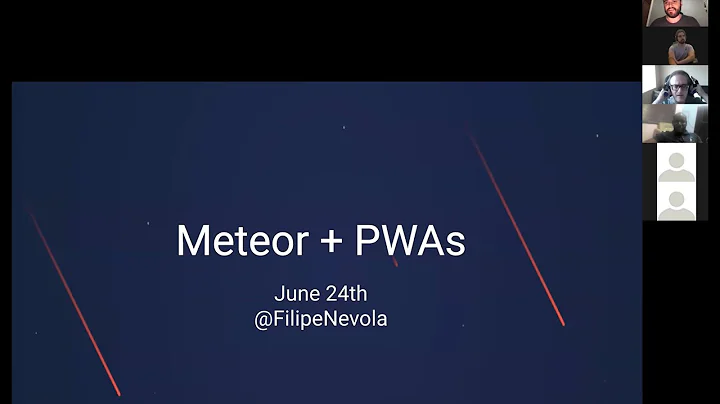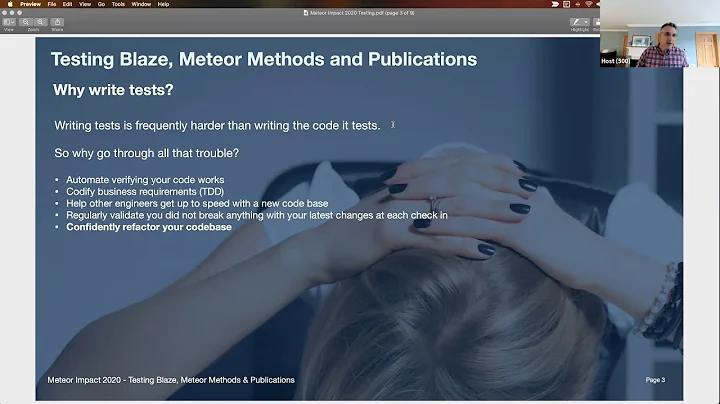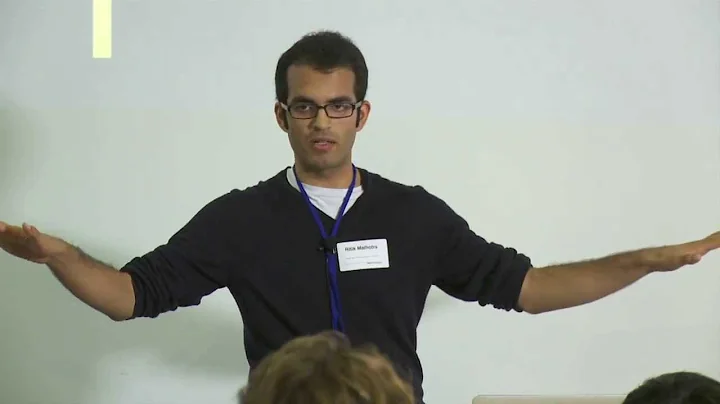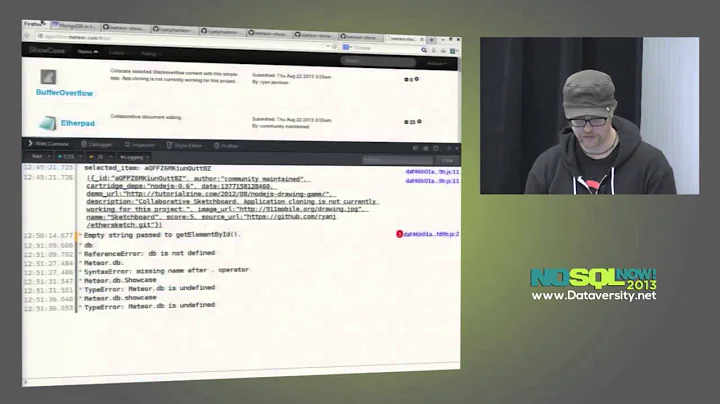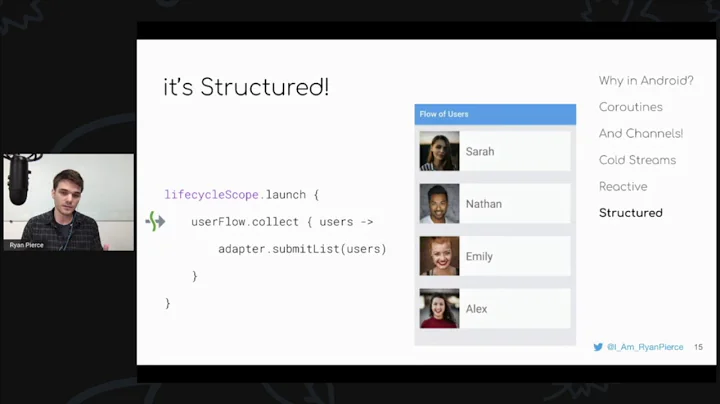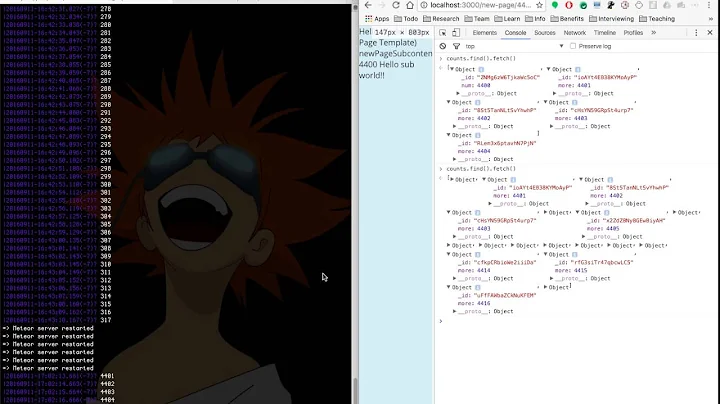Meteor observe changes added callback on server fires on all item
Solution 1
added will be called for every document in the result set when observeChanges is first run. The trick is to ignore the callback during this initialization period. I have an expanded example in my answer to this question, but this code should work for you:
(function() {
var initializing = true;
DATA.find().observeChanges({
added: function(id, doc) {
if (!initializing) {
console.log(doc);
}
}
});
initializing = false;
})();
Note that Tracker.autorun is a client-only function. On the server I think it only ever executes once.
Solution 2
I struggled with this for a long time. For some reason, David's answer did not work for me - it was firing after the initializing variable was set to false.
This pattern from Avi was successful for me:
var usersLoaded = false;
Meteor.subscribe("profiles", function () {
// at this point all new users sent down are legitimately new ones
usersLoaded = true;
});
Meteor.users.find().observe({
added: function(user) {
if (usersLoaded) {
console.log("New user created: ", user);
}
}
});
Solution 3
Since it is initialization issue, you can do this.
var observerOfMessages = Messages.find({}).observe({
added: function(doc){
if(!observerOfMessages) return;
console.log(doc)
}
});
This is more elegant actually.
Solution 4
Provide a selector for the query which does not match old items. If using mongo ObjectID as _id you could query for items that have _id greater than the latest item's:
const latest = DATA.findOne({}, {sort: {_id: -1}})
DATA.find({_id: {$gt: latest._id}}).observeChanges({
added: function() { ... }
})
Or with createdAt timestamp:
const currentTime = new Date()
DATA.find({createdAt: {$gt: currentTime}}).observeChanges({
added: function() { ... }
})
Solution 5
Here's another way to solve this:
Meteor.subscribe('messages', function() {
var messages = Messages.find();
var msgCount = messages.count();
messages.observe({
addedAt: function(doc, atIndex) {
if(atIndex > (msgCount - 1)) console.log('added');
}
});
});
Should only fire for docs added after the existing amount is delivered. It's important that this goes in an onReady callback for Meteor.subscribe so that the msgCount changes as your subscription does... if for example, you're paginating your subscriptions.
Related videos on Youtube
Bads
Updated on September 15, 2022Comments
-
Bads over 1 year
Tracker.autorun(function() { DATA.find().observeChanges({ added: function(id, doc) { console.log(doc); } }); });This code is being called on the server. Every time the meteor server starts, the
addedfunction fires for every single item in the database. Is there a way to have theaddedcallback fire only when new items are added? -
Bads about 10 yearsThis is so simple and I couldn't figure it out for days. Thankyou! How stupid of me to not realize that Deps.autorun is client only. Now I have one more question...if you could shed some light. If I run this function on a very large collection and never call stop, now that Meteor uses oplog, would it tax my system badly.
-
 Peppe L-G about 10 years@Bads You want the after and before hooks functionality? github.com/matb33/meteor-collection-hooks
Peppe L-G about 10 years@Bads You want the after and before hooks functionality? github.com/matb33/meteor-collection-hooks -
Bads about 10 years@PeppeL-G So you would say that using the after and before hooks is better than observe changes? Lets' say my use case is every time a document is added into a collection, modify it, then add that into another collection. Also I just looked through the entire document. It looks exactly like observeChanges. What is the difference?
-
 Peppe L-G about 10 years@Bads Just mentioned it as an alternative. I don't think that package works with cursors, so I don't think that solution will have the memory drawback you mention in your solution (if it exists).
Peppe L-G about 10 years@Bads Just mentioned it as an alternative. I don't think that package works with cursors, so I don't think that solution will have the memory drawback you mention in your solution (if it exists). -
Bads about 10 years@PeppeL-G. I see. Thanks. I will experiment with both the solution.
-
David Weldon about 10 years@Bads I'll ask the core devs who work on this, but my gut tells me this isn't the right approach - if for no other reason than your startup time may be prohibitive if
DATAis indeed a large collection. I think collection-hooks is a good suggestion to try out. I have not used it, but the code doesn't seem to contain the text "observe". An alternative is to only do inserts to your collection via a method call. That way your server code can always do the additional updates for you. -
Bads about 10 years@DavidWeldon Thanks, I think you are right. For now I will go with before after hooks. It's super easy. edit: The reason I did not want to include this after insert function in meteor method is because the data is coming from multiple method, and it would be nice if I just have one place to fun this function.
-
 Brett McLain over 8 years@Bads can you post your solution? I have tried using before and after but before actually doesn't get called before in many cases...
Brett McLain over 8 years@Bads can you post your solution? I have tried using before and after but before actually doesn't get called before in many cases... -
 Minderov about 7 years@chaintng
Minderov about 7 years@chaintngprofilesis probably how John named his publication where he publishes theMeteor.userscollection
